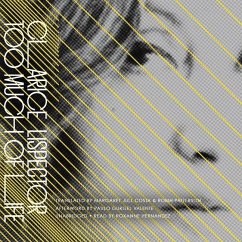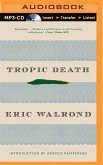In the magnificent feast of Clarice Lispector's books, her crônicas―short, intensely vivid newspaper pieces―are the delicious canapés. "The things I've learned from taxi drivers would be enough to fill a book. They know a lot: they really do get around. I may know a lot about Antonioni that they don't know. Or maybe they do even when they don't. There are various ways of knowing by not-knowing. I know: it happens to me too." The crônica, a literary genre peculiar to Brazilian newspapers, allows writers, or even soccer stars, to address a wide readership on any theme they like. Chatty, mystical, intimate, flirtatious, and revelatory, Clarice Lispector's pieces for the Saturday edition of Rio's leading paper, the Jornal do Brasil, from 1967 to 1973, take the forms of memories, essays, aphorisms, and serialized stories. Endlessly delightful, her insights make one sit up and think, whether about children or social ills or pets or society women or the business of writing or love. This new, beautifully translated work presents a new aspect of the great writer―at once off the cuff and spot on.




